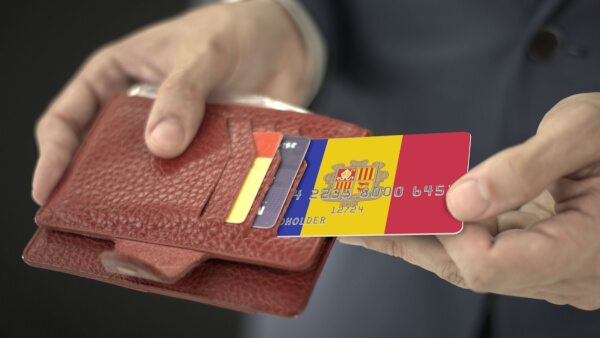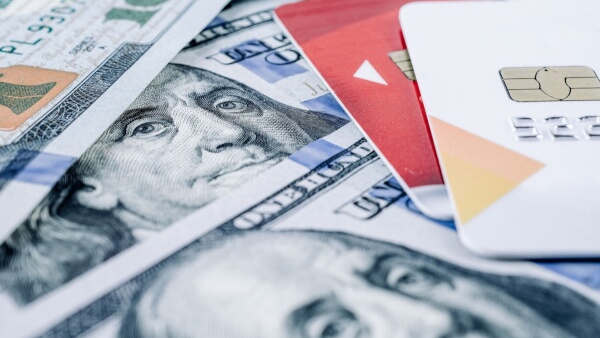How to open a UK bank account online in 2025
Check out our essential guide on how to open a bank account online, including bank types, required documents, fees, and more.

Visitors to Bulgaria are rewarded by a rich history, vibrant cultural life, fantastic fresh produce and a warm welcome. It's no surprise that the major cities such as Sofia, Plovdiv and Varna have large expat communities, made up of those coming to work, study or retire here. From skiing in the mountains, to splashing in the Black Sea, there's something for everyone.
If you're thinking of turning your trip to Bulgaria into something more permanent, then you’ll need a local bank account. Here's how to find the right bank for you.
Opening a bank account in Bulgaria is an easy process. The biggest challenge you’re likely to face is with language - if you can have a translator with you it will make life much easier. Documents are not available in English as a standard, and having someone help you understand them is a reassurance.
To open an bank account in Bulgaria you will need:
Bulgarian administration is notoriously heavy on paperwork. Expect to spend some time filling in forms, and signing documents multiple times. It usually takes a week or so to get a bank card, which can be delivered to your chosen address or collected from the bank in person.
To hold a bank account in Bulgaria, the bank must see original or notarised copies of your ID document. This means that opening an account from abroad is rather tricky, although there are agencies who will act on your behalf for a fee. By giving them power of attorney, and having your passport copy notarised, they can complete the documentation for you before you arrive in Bulgaria.
Check the credentials of any agency you choose to act on your behalf and make sure you know precisely what you're paying for.
To open a bank account you simply need to present your passport and have an address that can be used to register the account. This can be done by non-residents without any problems.
Bulgaria has a good banking network, with ATMs and bank branches found all over the country. Regional giants like Raiffeisen have a particularly big presence, and other international banking institutions can be found working with investments and corporate clients.
When choosing a bank, ease of access to a branch and ATM is an important factor. Most day-to-day banking is done online, but charges for using ATMs outside of the bank’s network are common. Bill payments are commonly made via your own bank ATM too - so it’s worth looking for a bank with facilities close by.
Here is a list of some national retail banks in Bulgaria worth looking into:
| Bank Name | Description |
|---|---|
| UniCredit Bulbank | As one of Bulgaria’s largest banks, UniCredit Bulbank has an extensive branch and ATM network. They offer a full range of financial products and have an excellent online banking app (available in English). Their main branch in Sofia has English-speaking staff. |
| Raiffeisen | Raiffeisen is an Austrian banking group with a huge network across Central and Eastern Europe, including Russia. They have 147 branches in Bulgaria, including some 20 with extended opening hours. Many of these are conveniently placed in shopping centres, making them a good choice for people who work long hours. |
| DSK | DSK offers a range of accounts, debit and credit cards, and savings products. They also serve corporate and investment customers and offer mobile and internet banking as standard. |
| Postbank | Postbank has a presence in all of Bulgaria’s towns and cities, with a huge network of ATMs and branches. They offer a range of products, including current accounts, which can be opened by simply presenting an ID and completing the required form. |
You do not need to make an appointment in advance to open an account at any of Bulgaria’s banks. Most branches have a ticket queuing system, so you can simply arrive and wait your turn. If you do not speak Bulgarian then you’d be best choosing a large branch where there might be English speaking staff. It’s not a streamlined process, so be patient.
Before you sign on the dotted line, and open a bank account in Bulgaria, you need to read the terms and conditions carefully. This is especially important when it comes to banking fees and charges.
Ask for a copy of the account particulars in English, or take a translator along to help you. Make sure you check if there are regular charges levied to keep your account open or use a credit or debit card.
Other common charges include a set fee for withdrawing cash from an ATM operated by a different bank. This is common in Bulgaria so make sure you will have convenient access to the ‘right’ ATMs.
If you're living abroad, there will probably be times that you need to transfer money between accounts which use different currencies. Make sure you find the most economical way of doing this, as fees for international money transfers via your bank can be especially painful. As well as a charge for processing the transaction, and international receiving fee at the end bank account, expect to see the bank’s profit rolled into an exchange rate which is far from favourable.
Consider using Wise instead. With Wise you can transfer money between accounts using the mid market exchange rate. This is the only real exchange rate, and the one the banks use to trade currencies amongst themselves. While banks typically add a markup to the mid market rate, with Wise you'll find no mark up, and no hidden fees. Instead, we charge a clear set charge for your transfer, and give you the best rate available. Check out our website to find out more about simple international money transfers with Wise.
*Please see terms of use and product availability for your region or visit Wise fees and pricing for the most up to date pricing and fee information.
This publication is provided for general information purposes and does not constitute legal, tax or other professional advice from Wise Payments Limited or its subsidiaries and its affiliates, and it is not intended as a substitute for obtaining advice from a financial advisor or any other professional.
We make no representations, warranties or guarantees, whether expressed or implied, that the content in the publication is accurate, complete or up to date.

Check out our essential guide on how to open a bank account online, including bank types, required documents, fees, and more.

Check out our essential guide on how to open a bank account in Jersey as a British expat, including documents, fees, banks and much more.

Check out our essential guide on how to open a bank account in Monaco as a British expat, including documents, fees, banks and much more.

Check out our essential guide on how to open a bank account in Andorra as a British expat, including documents, fees, banks and much more.

Read our rundown of the best Nationwide USD account alternatives available in the UK, including HSBC, Lloyds, Wise, Barclays, Revolut and more.

Read our essential guide to the Revolut USD Account, including info on features, fees, rates, limits and how to apply.